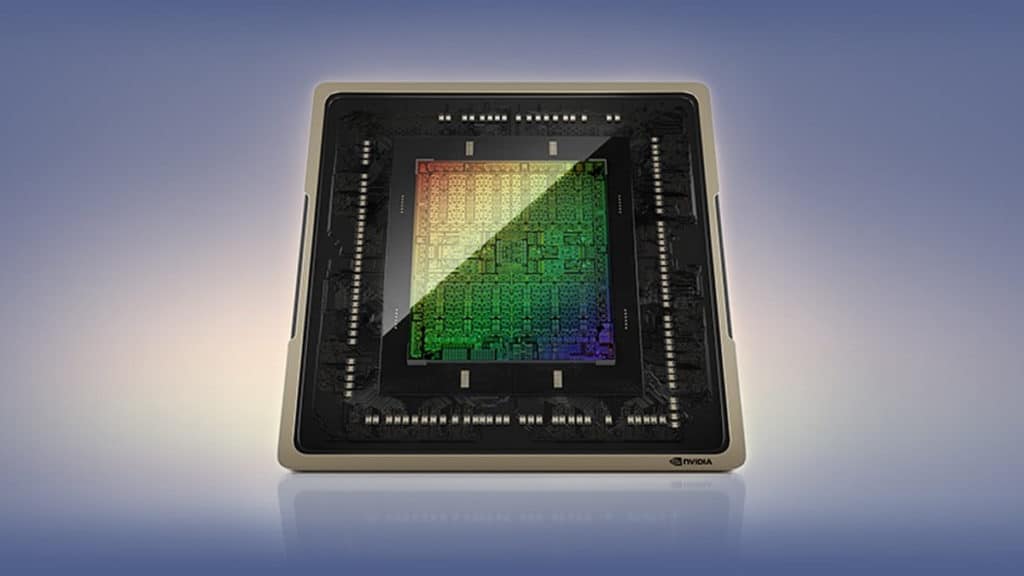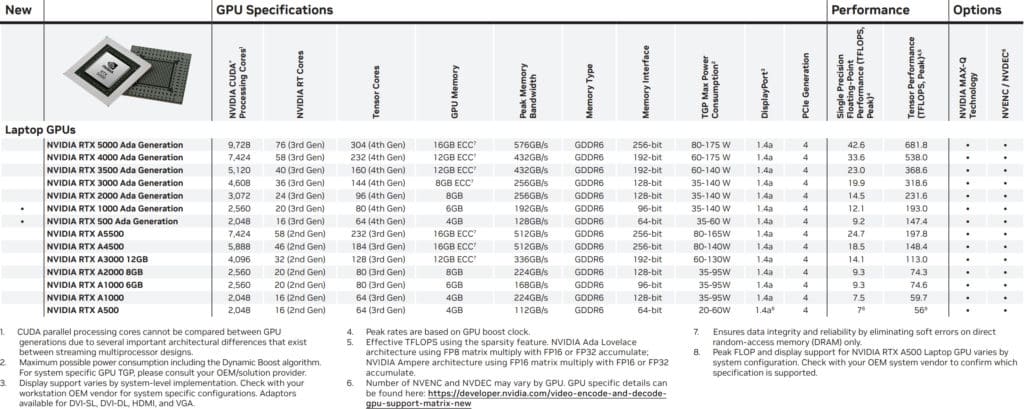New NVIDIA RTX 500 and 1000 Ada Generation Laptop GPUs will be available this spring in mobile workstations from global manufacturing partners that include Dell Technologies, HP, Lenovo, and MSI, NVIDIA has announced. The new GPUs, which join the flagship RTX 5000 and RTX 4000 under NVIDIA’s current lineup of RTX Laptop GPUs, deliver 193 and 147.4 TOPS of AI performance, respectively.
NVIDIA RTX professional laptop GPU stack/specs:
Key features include:
- Third-generation RT Cores: Up to 2x the ray tracing performance of the previous generation for high-fidelity, photorealistic rendering.
- Fourth-generation Tensor Cores: Up to 2x the throughput of the previous generation, accelerating deep learning training, inferencing and AI-based creative workloads.
- Ada Generation CUDA cores: Up to 30% the single-precision floating point (FP32) throughput compared to the previous generation for significant performance improvements in graphics and compute workloads.
- Dedicated GPU memory: 4GB GPU memory with the RTX 500 GPU and 6GB with the RTX 1000 GPU allows users to run demanding 3D and AI-based applications, as well as tackle larger projects, datasets and multi-app workflows.
- DLSS 3: Delivers a breakthrough in AI-powered graphics, significantly boosting performance by generating additional high-quality frames.
- AV1 encoder: Eighth-generation NVIDIA encoder, aka NVENC, with AV1 support is up to 40% more efficient than H.264, enabling new possibilities for broadcasting, streaming and video calling.
Performance claims from NVIDIA:
The new RTX 500 GPU delivers up to 14x the generative AI performance for models like Stable Diffusion, up to 3x faster photo editing with AI and up to 10x the graphics performance for 3D rendering compared with a CPU-only configuration — bringing massive leaps in productivity for traditional and emerging workflows.


